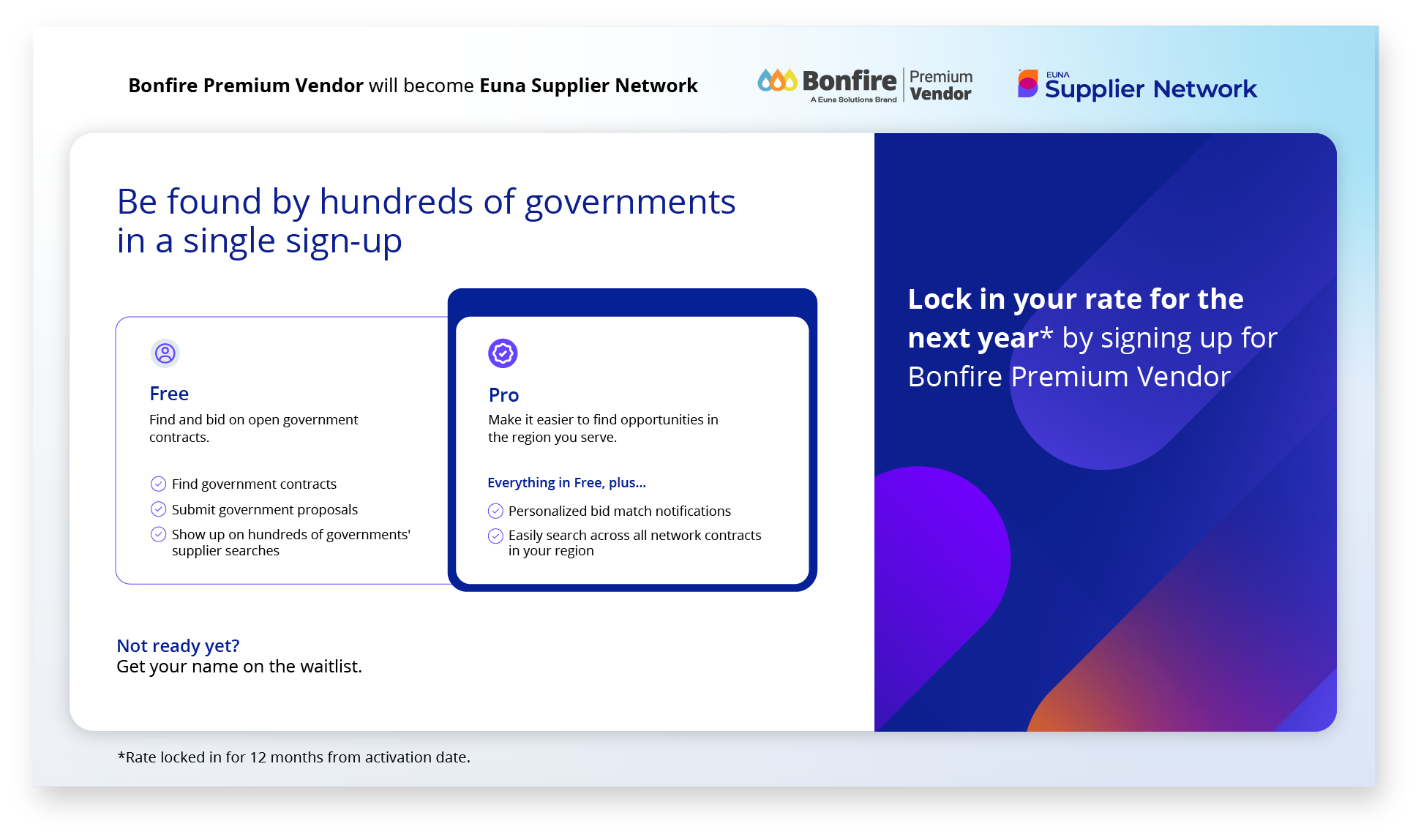When it comes to public procurement, contracts are an absolute necessity. From the very beginning, they help establish the type of business relationship a buyer will have with a vendor, setting out parameters including quality of materials, payment terms, and delivery times. A mutually agreed-upon contract protects both buyer and seller, ensuring both parties know what is expected of them going forward.
Types of Procurement Contracts
While types of procurement contracts can vary depending on the nature of the buyer-seller agreement, there are three main types that you’ll most likely encounter as you begin your journey into the world of government business. Let’s dive into them in more detail below:

Fixed Price Contracts
Sometimes called a “lump-sum contract”, a fixed price contract is the most common and straightforward contract type. In a firm fixed price contract, everything is clearly laid out with no room for interpretation. Project terms, the goods or services provided, and the actual costs to the buyer are plainly established.

The benefit to managing fixed price contracts is that it makes both the buyer and vendor feel confident and secure in their agreement. The vendor understands exactly what they are expected to provide, when they are to provide it, and what parameters they are to follow. Alternately, the buyer knows how much the actual cost for the goods or services will be at the end of the transaction. Because of their directness and basic structure, a fixed price contract is the most popular choice for procurement contracts.
Cost Reimbursement Contracts
Cost reimbursement contracts—or cost control contracts—are a little trickier. In a cost reimbursement contract, the buyer agrees cover the total cost of the work completed. That means the buyer reimburses them for the basic material cost as well as indirect costs, such as salaries and utilities, that are required for the goods or services. Because of this, vendors will usually get either a fixed fee or a percentage of the profit over the cost price in return.

A cost reimbursement contract saddles the vendor with a sizeable amount of risk, as they put money up front for the entire project cost and will only be issued payment once the buyer has verified and reconciled all expenses claimed. In addition, if the project’s scope becomes bigger, it’s the vendor who must shoulder any extra costs associated with these changes.
To protect themselves against risk, vendors typically bake into the contract terms any additional fees for extraordinary changes to discourage pricey modifications.
Time-and-Materials Contracts
As a vendor, you can also request a time-and-materials procurement contract, in which you’re not only reimbursed for materials used, but also paid for the amount of time (in days or hours) you or your team has spent working on a project. As a result, this is a popular type of contract for software developers and other vendors who mainly provide a service rather than a material product.
An agreement like this casts the vendor as a sort of third-party contractor, with the majority cost going towards the hours of labour being provided rather than anything more tangible. Due to the murkier parameters around projects like these, the flexibility of a time-and-materials contract provides both parties with the ability to be adaptable should there be any unforeseen obstacles. The only downside is the increased level of contract management and supervision needed to keep things from going over budget.

Depending on the nature of your business, you could encounter any one of these contract types (or all three) as you begin to discover the world of public procurement. The most important thing of all is to ensure that every contract you enter into makes its expectations and responsibilities clear so that all parties remain accountable. By including every pertinent detail and making sure roles are defined, you’ll go a long way towards ensuring healthy business relationships with public agencies going forward.
And if you’re looking for a great way to find the right government contracts for your business, a Bonfire Premium Vendor membership is a great place to start.



